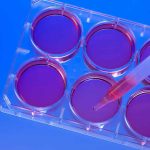Muscle recovery hinges on optimal repair strategies, and protein timing plays a significant role. Consuming protein after exercise can enhance repair processes, leading to stronger muscles and improved performance. Timing your intake effectively can make all the difference. Explore how aligning your protein consumption with your workout schedule maximizes recovery, boosts muscle synthesis, and supports your fitness goals. Understanding this interplay can unlock new levels of performance and health for athletes and fitness enthusiasts alike.
Understanding Protein Timing
Protein timing is a strategic approach to post-exercise nutrition that focuses on the optimal consumption of proteins for muscle recovery. Its significance lies in ensuring that the muscles receive the nutrients they need precisely when they are most receptive to repair and growth. This timing can enhance the effectiveness of protein intake, aiding in quicker recovery and improved performance.
Also to read : Exploring the Impact of Behavioral Activation Therapy on Reducing Depression Among Older Adults
Post-exercise, the body undergoes various physiological processes to repair muscle tissues. During this time, muscle fibres that have been stressed and slightly damaged during a workout need to be rebuilt. This repair process is crucial for muscle growth and is heavily dependent on the availability of proteins and amino acids.
Amino acids, the building blocks of proteins, play a vital role in protein synthesis, which is the process of rebuilding and repairing muscle tissues. Consuming protein-rich foods or supplements shortly after exercise can significantly boost protein synthesis rates, thereby accelerating recovery. By understanding and applying protein timing, individuals can effectively support their muscle recovery and enhance their overall fitness outcomes.
Topic to read : Discover the power of protein superfood powder for wellness
Scientific Evidence Supporting Protein Timing
Understanding the science behind protein timing is crucial for optimizing muscle recovery and performance. Research has delved into how the timing of protein intake can significantly influence exercise recovery and muscle repair.
Key Studies on Protein Timing
Numerous protein intake studies have demonstrated that consuming protein immediately post-exercise can enhance muscle recovery. For instance, research indicates that the anabolic window—a period shortly after exercise—maximizes the body’s ability to utilize protein for muscle repair. This window is typically considered to be within 30 minutes to 2 hours post-exercise.
Mechanisms Behind Enhanced Recovery
The mechanisms that underpin enhanced recovery through protein timing involve increased protein synthesis and reduced muscle protein breakdown. When protein is ingested soon after exercise, the availability of amino acids is heightened, promoting efficient muscle repair. This process is supported by muscle repair research, which highlights the importance of amino acids in rebuilding muscle fibers.
Impact of Different Types of Protein
The type of protein consumed also plays a role in recovery. Whey protein, for example, is rapidly digested and has been shown to effectively stimulate muscle protein synthesis. In contrast, casein protein, which digests more slowly, provides a sustained release of amino acids, supporting prolonged recovery periods.
Recommended Timings for Protein Consumption
Understanding the optimal protein timing is essential for maximizing muscle recovery. The critical time frame, often referred to as the recovery window, is pivotal for effective post-workout nutrition. This period typically spans from immediately after exercise up to two hours post-exercise. Consuming protein during this window can significantly enhance muscle repair and growth.
Immediate vs. Delayed Protein Consumption
Immediate protein intake post-exercise is generally more beneficial than delayed consumption. Studies suggest that consuming protein within the first 30 minutes to an hour after working out can lead to better muscle recovery outcomes compared to waiting longer. The body’s ability to absorb and utilize amino acids is heightened during this time, making it the most effective period for protein consumption.
Guidelines for Different Athletes
For endurance athletes, focusing on carbohydrates alongside protein during the recovery window can aid in glycogen replenishment. Strength athletes, on the other hand, may benefit more from higher protein intake to support muscle repair. Additionally, the intensity and duration of the exercise should guide protein consumption strategies, ensuring that individual needs are met for optimal recovery.
Practical Tips for Optimizing Protein Intake
Understanding how to incorporate protein into your daily routine effectively can significantly enhance muscle recovery and performance. Implementing strategic nutrition strategies and selecting the right protein sources are key to maximizing the benefits of protein intake.
Best Protein Sources for Recovery
Choosing the right protein sources is essential for effective muscle recovery. High-quality proteins such as whey and casein are excellent options. Whey protein is rapidly absorbed, making it ideal for immediate post-exercise consumption. In contrast, casein provides a slower release of amino acids, supporting sustained recovery. Other effective sources include lean meats, fish, eggs, and plant-based proteins like lentils and quinoa.
Sample Post-Workout Meals and Snacks
Crafting balanced recovery meals can optimize muscle repair. Consider a meal like grilled chicken with quinoa and vegetables, which provides a mix of proteins and carbohydrates. For snacks, a protein smoothie with whey protein, banana, and almond milk is both nutritious and convenient.
Incorporating Protein into Daily Routine
To integrate protein seamlessly into your routine, plan meals ahead and keep protein-rich snacks accessible. Aim to include a source of protein in every meal to maintain consistent amino acid availability. This approach supports continuous muscle recovery and growth, aligning with effective nutrition strategies.
Common Misconceptions About Protein and Recovery
Misunderstandings about protein myths and recovery can hinder optimal nutrition strategies. Let’s address some of these misconceptions to ensure effective muscle repair.
Debunking Myths About High Protein Intake
One common recovery misconception is that excessively high protein intake automatically enhances muscle growth. While protein is crucial, consuming more than the body can utilize does not equate to better recovery. The body has a limit to how much protein it can process effectively at one time.
Clarifying Misunderstandings About Protein Timing Efficacy
Another myth is that protein timing has no significant impact on recovery. In reality, consuming protein during the recovery window is indeed beneficial. This period allows the body to maximize protein synthesis and repair muscle tissues efficiently.
Role of Carbohydrates and Fats in Recovery
It’s also essential to address the role of carbohydrates and fats alongside protein. Carbohydrates replenish glycogen stores, crucial for energy recovery, while healthy fats support overall muscle repair. Balancing these macronutrients with protein ensures comprehensive recovery and optimizes performance. Understanding these nutrition facts helps in making informed dietary choices that support overall fitness goals.











